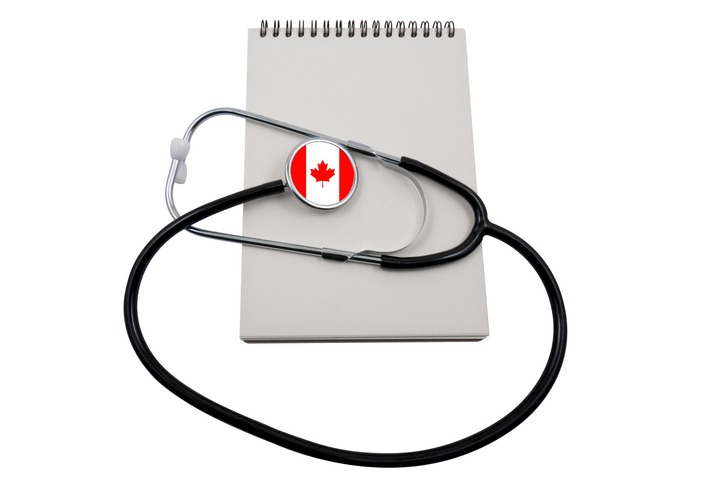When you picture moving to Canada, you might think of stunning landscapes, polite locals, and a welcoming society. But before you can pack your bags and call it your new home, there are some practical steps you must navigate through – and one of those steps is the medical exam for immigration applicants. If you’re planning to migrate to the Great White North, understanding why Canada requires a medical exam can help prepare you for a seamless process. So, let’s break it down together.
The Purpose of the Medical Exam
First, why does Canada ask immigrants to go through medical check-ups? Well, there are a few solid reasons:
-
Protecting Public Health: Canada wants to ensure that incoming residents don’t pose a public health risk. This means they’re looking out for conditions that might be contagious and could spread within the Canadian population.
-
Safeguarding Healthcare Resources: The country has a publicly-funded healthcare system, which means it needs to budget for its residents’ medical needs. Accepting individuals with certain health conditions might place a heavy burden on this system.
-
Ensuring Safety: Ensuring that new residents don’t pose a threat to the safety of Canadians is also a priority.
When it comes to health standards for immigration, every applicant must meet these requirements no matter which category they apply under – whether it’s as a skilled worker, a family member being sponsored, or as a refugee.
Who Is Qualified to Complete Your Medical Exam
It’s not just any doctor who can dole out a stamp of health approval for your immigration process. You need to get this exam done by a panel physician who is qualified to complete your exam. These medical professionals are specially designated by Canada’s immigration authorities and are familiar with the specific requirements you need to meet. So, no matter where you are in the world, you should get in touch with a panel physician to get your immigration medical exam completed accurately.
What Happens During The Medical Exam?
Curious about what the medical exam entails? Let’s walk through the steps.
-
Medical History and Physical Examination: You’ll discuss your medical history, and the doctor will perform a standard physical exam. They’ll check out your eyes, ears, heart, lungs, skin, and more to ensure everything is in good condition.
-
Laboratory Tests: Blood and urine tests are part of the protocol to check for illnesses and conditions that might be of concern.
-
Chest X-rays: These are typically required for adults and might be used to detect respiratory illnesses or other conditions.
The key point here is that whatever is being checked it’s not about barring people with health issues. It’s about understanding one’s health status and ensuring it aligns with Canada’s immigration health standards.
Exceptional Cases and Accommodations
What if you have a health issue? Are you automatically disqualified? Not necessarily. It depends on the nature and severity of the condition.
Pregnant women, for instance, can often get the chest X-ray postponed to protect the unborn baby, or special shielding can be used. Children under a certain age may not need certain tests, and there are accommodations based on individual circumstances that a qualified doctor can discuss with you during your appointment.
After the Exam: What’s Next?
Once you’ve taken the exam, your panel physician sends the results directly to immigration officials. You typically won’t receive a copy yourself, so don’t be surprised if you leave with no paperwork in hand. The results become part of your immigration application, and you’ll be notified if there are any issues or if further information is needed.
What If There Are Health Concerns?
If your medical exam uncovers health concerns, it doesn’t always mean you’ll be denied entry into Canada. Instead, it could lead to additional requirements or conditions being put on your entry.
For example, you might need to agree to certain medical treatments once you arrive in Canada or have follow-up health checks. Plus, it’s important to have comprehensive health insurance to cover any medical needs that the Canadian healthcare system might not immediately provide for new immigrants.
Finding a Trusted Clinic
When it comes to your immigration journey, choosing the right clinic for your medical exam is more than just ticking a box – it’s about making sure everything proceeds without a hitch. In the vast province of Ontario, for example, one might seek an immigration medical clinic Toronto, known for its quality health services and accessible locations.
No matter where you choose to have your medical exam, the clinic must be recognized by the Government of Canada, housing professionals who are not just experienced but are officially sanctioned to guide you through this crucial phase of your application. Getting your exam done at such a clinic ensures that it’s handled with the care and specificity the immigration process demands.
Prepping for Your Appointment
Here’s a basic rundown on how you can prepare for your immigration medical exam:
-
Bring identification, like your passport or driver’s license.
-
Have your medical history ready, including immunization records and any current medications.
-
Wear glasses or contacts if you need them, as you’ll have a vision test.
-
Avoid caffeine and smoking prior to the exam, as it can affect your blood pressure readings.
It’s also wise to book your appointment well ahead of your immigration application deadline. This gives you ample time to complete any follow-up steps if needed.
Considering Accessibility and Convenience
We can’t stress enough the importance of accessibility and convenience when it comes to scheduling your immigration medical exam. Your ideal clinic should be reachable without too much fuss and flexible enough to fit into your life’s schedule. Let’s say you’re nestled in a bustling city center or a quiet suburb; finding a clinic that’s nearby will cut down on travel time and simplify the process. This is especially helpful if any additional visits are required.
For those residing in less metropolitan areas, the aim is to locate a clinic that can provide you with an immigration medical exam in Kitchener without the need to travel significant distances. Streamlining this step not only brings you closer to your Canadian dream but also makes for one less hurdle in the immigration journey.
Final Thoughts
In summary, while a medical exam might sound daunting, it’s a standard part of the Canadian immigration process to keep everyone safe and the healthcare system sustainable. So equip yourself with the necessary information, schedule your exam with a qualified panel physician, prepare accordingly, and embrace the path ahead with confidence.




